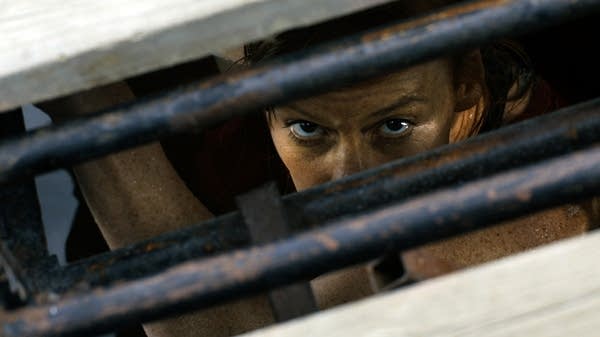After war, veterans with PTSD enter new battle at home
Go Deeper.
Create an account or log in to save stories.
Like this?
Thanks for liking this story! We have added it to a list of your favorite stories.

Former Jt. Chiefs chairman Admiral Mike Mullen says we should drop the D in PTSD. It's not a disorder, it's a normal response you'd expect from the horror of war.
A documentary from the Humankind series about post-traumatic stress disorder, titled "Healing the Trauma of War" follows returning soldiers who have suffered this "moral injury."
Veterans, chaplains and counselors discuss the healing process in the documentary, produced by David Freudberg in 2016.
One man identified only by his first name, Kyle, is a veteran who served in Iraq and Afghanistan — he shared his story for the documentary saying he hoped it will help other vets.
Turn Up Your Support
MPR News helps you turn down the noise and build shared understanding. Turn up your support for this public resource and keep trusted journalism accessible to all.
Kyle, who worked on a farm throughout this childhood, said when he first joined the army he "fell in love with it."
Kyle then detailed an ambush from his time deployed in Afghanistan, "it's seared into my brain."
After the attack Kyle said he didn't want to talk to anyone.
"I think I smoked a pack of cigarettes by myself and I could feel a change in me. Nothing that, you know, prevented me from doing my job. But, something changed, you see something like that and I was just numb, or cold, and somewhat emotionless to it at that time. Which was, I mean, that's what happens is you're there, what are you going to do? Sit and cry and give up?"
Kyle explained that after he came back from serving he began to feel symptoms of PTSD.
He described the symptoms, explaining that when serving the "combat mindset" you are trained to adopt doesn't leave any time for argument — "It's: Hey, do this, do it now, do it right, and move on."
"You're impatient, everything needs to be done and done right and if not it evokes a response of anger or anxiety," Kyle said.
To listen to the entire documentary, click the audio player above.
Further reading
• Minnesota OKs medical pot for post-traumatic stress disorder
• A daughter explores her father's PTSD, from Vietnam until today
• War studies suggest a concussion leaves the brain vulnerable to PTSD
• Hallberg's Picture of Health: Dealing with PTSD
MPR News presents offers speeches, documentaries and debates — airing weekdays from noon to 1 p.m




